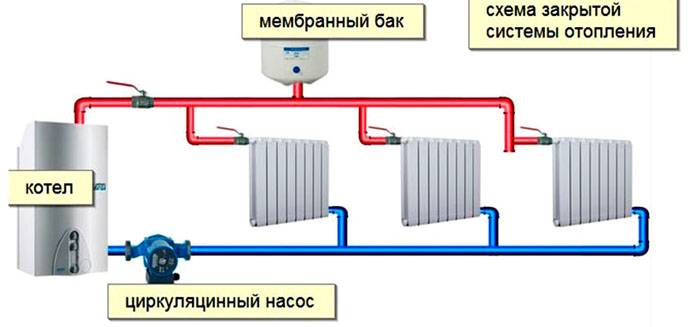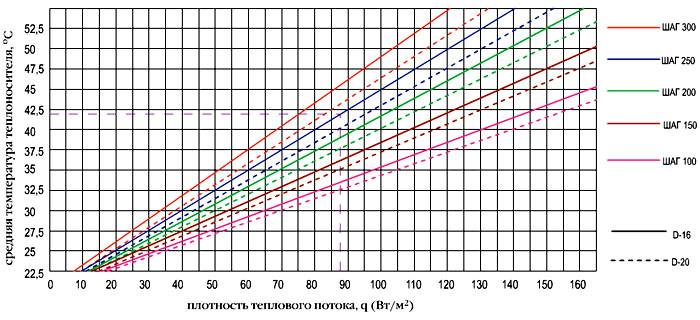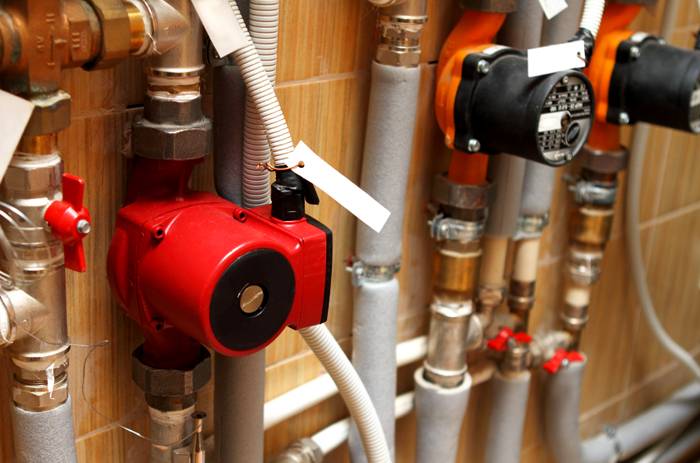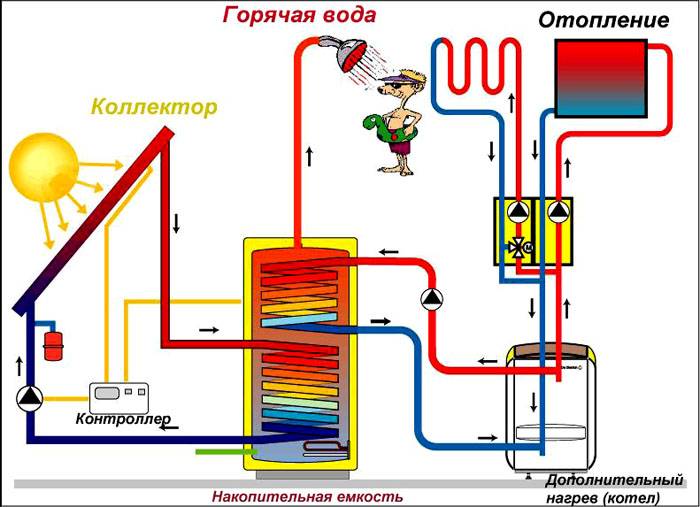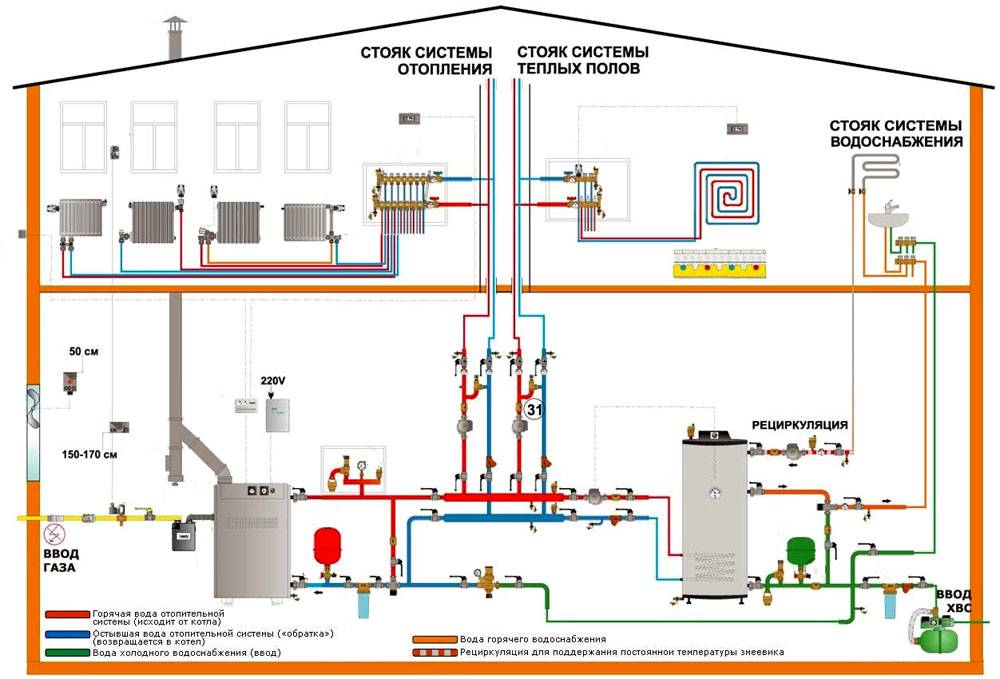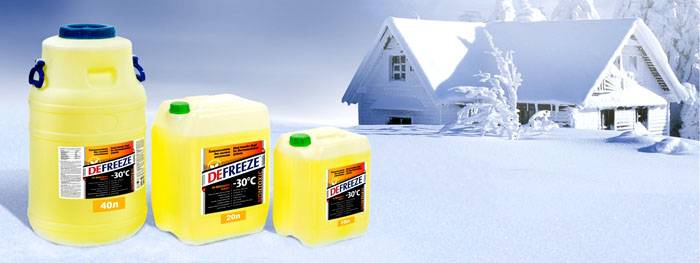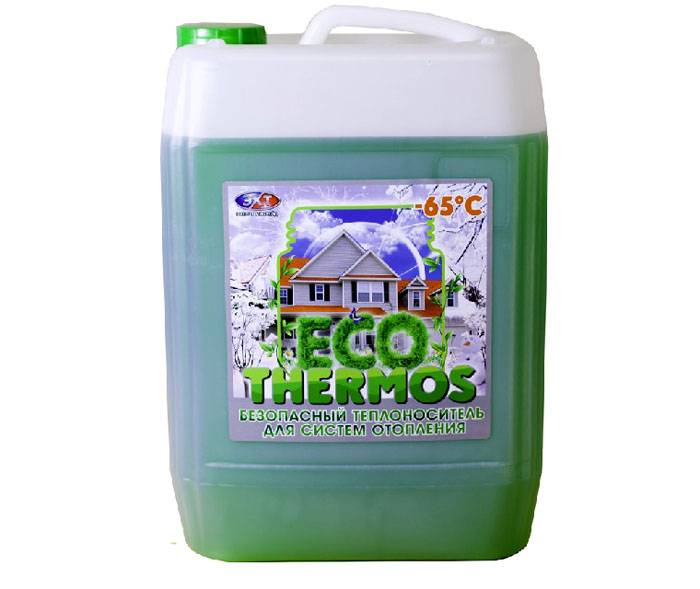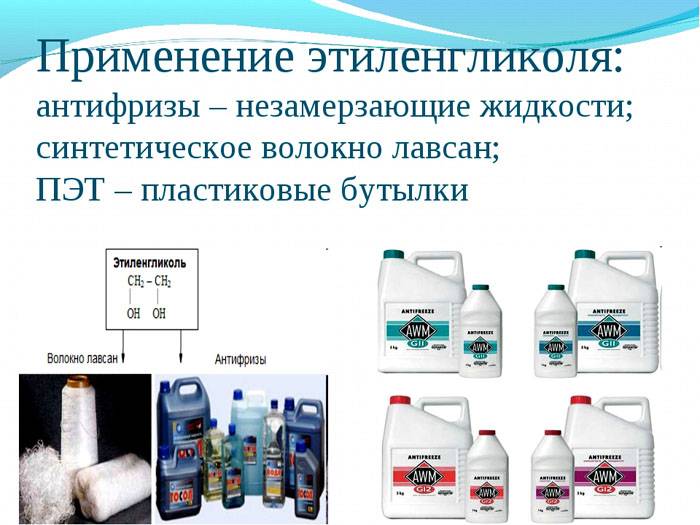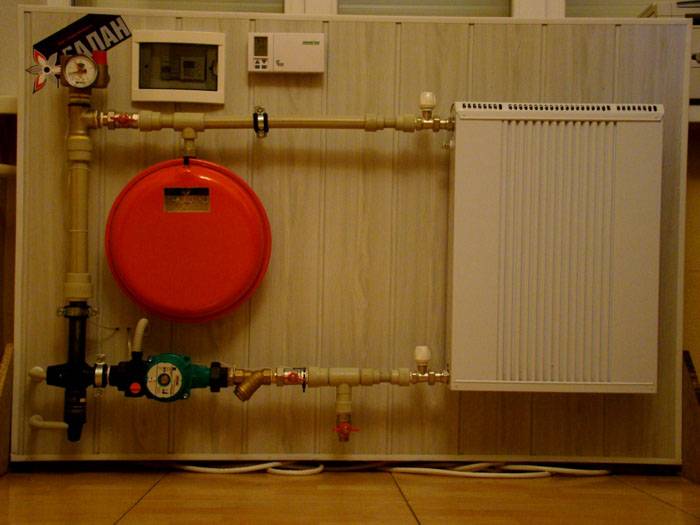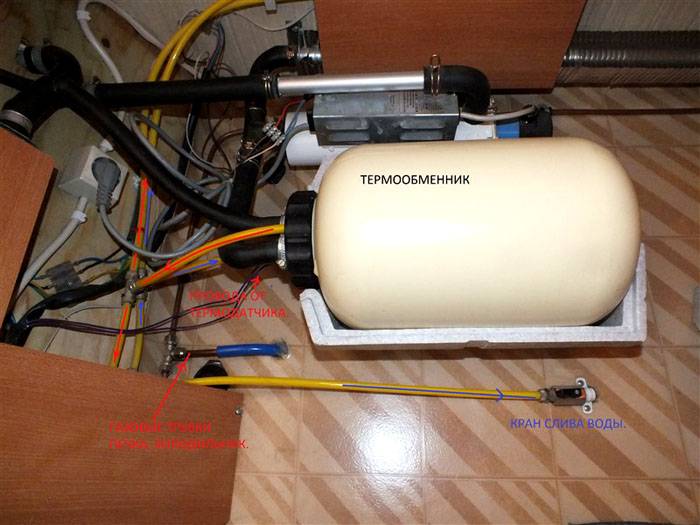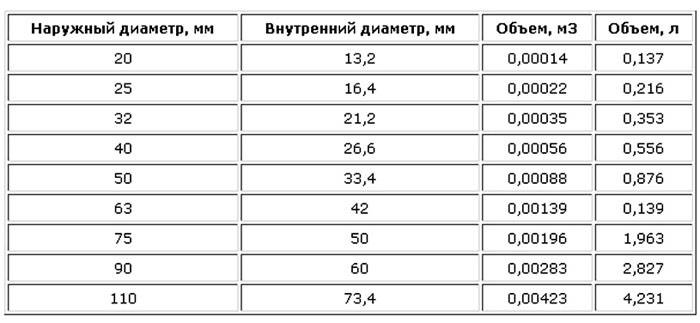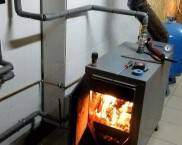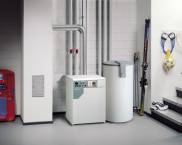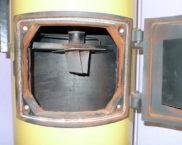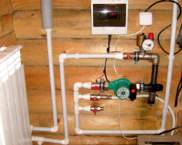How to choose the right quality coolant for the heating system of a country house
Any heating system is not able to function without a coolant moving along its circuits. This liquid moves not only along highways and batteries, but also contacts the pump, heat exchanger and other units. The quality and durability of the entire installation depends on how harmless the coolant is for the heating system of a country house. The choice of heating fluid depends on many factors. It is worth examining its composition and existing characteristics.
The content of the article
- 1 What is a coolant: basic requirements
- 2 How to choose a coolant for the heating system of a country house
- 3 Pros and cons of water
- 4 Non-freezing options
- 5 Helpful tips for choosing the right option
- 6 How much coolant is needed for quality work?
- 7 Calculator for calculating the total volume of the heating system
- 8 Video: anti-freeze kills heating?
What is a coolant: basic requirements
Before deciding which coolant is better to use in the heating system, it is important to understand what it is. Such a liquid facilitates the movement of warm flows within the pipeline.The coolant is poured into the tube cavity, and then the liquid is heated and transferred to the desired temperature.
As the fluid circulates, the media transfers heat to the walls of the equipment, which releases heat into the air. After cooling, the liquid continues to move along the lines and is heated at some intervals. Heating is carried out in the boiler structure. At the same time, the required temperature value is maintained in the system, which does not allow the highways and the building to cool down.
Heating devices with liquids are in demand due to their simple design. In addition to water for heating, special compounds called antifreeze.
Certain requirements are imposed on any coolant:
- increased level of heat transfer;
- availability;
- good fluidity;
- small expansion ratio;
- safety for human health;
- frost resistance and inability to freeze with a significant drop in temperatures.
Plain water satisfies many requirements. It transfers heat quickly, is fluid and has a low expansion coefficient.
Helpful information! It is impossible to choose a composition with a high coefficient of expansion for plastic pipes. Pipes from this they can burst during warming up or during transportation of liquid. Water is a hazard for steel lines.
How to choose a coolant for the heating system of a country house
In addition to water, you can choose other coolant options for the heating system of a country house. Different types of antifreeze are often used. A similar solution contains the main component and additives. The following substances are used as the main element:
- glycerol;
- ethyl;
- propylene glycol and ethylene glycol;
- solutions with petroleum oils.
Pros and cons of water
A common heat carrier for the heating system of a country house is water. It differs from other analogs in the highest heat capacity. The environmental properties of water exceed those of any other liquid, and if water accidentally leaks from the system, it will not cause inconvenience to residents. In addition, water is one of the most affordable and simplest types of coolant.
But also water in a normal state contains elements of salt and oxygen, which affect the appearance of internal corrosion and overgrowth of walls with sediments, which reduces the degree of heat transfer.
Helpful information! Distilled water is recommended for heating circuits, as it is practically free of impurities. It is important to monitor the temperature of the coolant in private house heating system, since at minus indicators, the water freezes and grows in volume, which will cause great damage to the entire structure.
Non-freezing options
Antifreezes are a large group of non-crystallizing components. This option is suitable if the house is not heated all the time. You can't just buy antifreeze and pour it into the system. Antifreeze solutions should be suitable for household use. They can affect the transfer of heat energy and do not create corrosion processes and deposits. At subzero temperatures, such compositions do not harden or grow, but are converted into a mass from a gel with a constant volume.
To increase the service life of the structure, special additives are added to the solution, which eliminate the formed deposits. When choosing antifreeze for a heating system, price is important. Also remember that the solution is not universal. Additives are suitable for certain alloys and materials.
Helpful information! The special composition of anti-freezing liquids is designed for five years of operation, then the entire volume of the liquid must be replaced.
The choice of a glycerin-based coolant: disadvantages and advantages
The heat carrier with glycerin is a solution of glycerin in water with various additives and dyes. The presence of glycerin lowers the freezing point, which makes the entire heating system more stable.
The additives in the composition prevent foaming and oxidation. The advantages of the solution include:
- lower crystallization temperature compared to other formulations;
- non-flammable and fireproof;
- does not harm health;
- high level of heat transfer.
The disadvantages include strong foaming, which contributes to the appearance of air in the system. There is also a risk of corrosion in metal parts.
Features of coolants-antifreeze with ethylene glycol
Ethylene glycol is not the safest option, so the heating system must be designed as a closed circuit for it. Experts say that this option cannot be used for structures with a double-circuit boiler. In addition, ethylene glycol reacts poorly to overheating. In this case, a significant amount of precipitation is formed.
Helpful information! You can get poisoned with such a coolant simply by wetting your hands in it or breathing it in vapors.
Propylene glycol based fluids
Propylene glycol is also called antifreeze. The advantages of the solution include the fact that it does not freeze and has excellent heat transfer. The disadvantages include a high expansion coefficient. It may boil if the temperature rises sharply. Propylene glycol is a dihydric alcohol that looks like a viscous, colorless liquid.
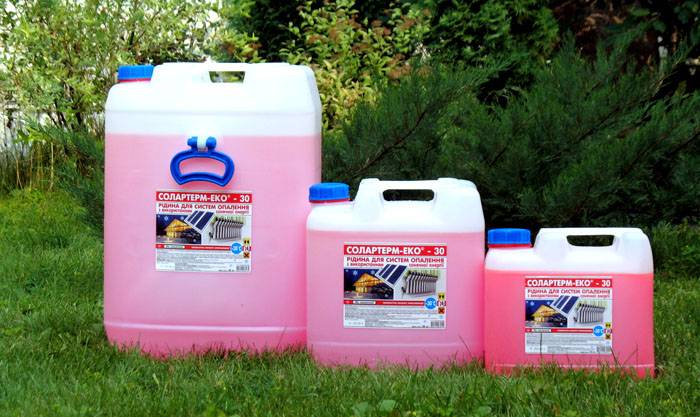
Non-freezing liquids are packed in containers of different sizes, which contributes to the choice of a more accurate amount of solution
Option for electrode boilers
For electrode boilers, the composition of the coolant is of great importance. It should be distilled water with the addition of table salt. To make an anti-freeze for heating with your own hands, 80-100 grams of salt is added for every 100 liters.
Preparation of the solution is carried out on site, taking into account the value of the current in the equipment. The compositions provided by the manufacturer are used as antifreeze.
Helpful tips for choosing the right option
The choice of coolant depends on the design features of the system. If the pipeline system can easily be emptied of the solution and if the lines pass in a heated room, then water is selected. Propylene glycol is poured into pipes, which have forced circulation with a pump. Glycerin does not require special modifications for the system. When using ethylene glycol, remember that it is a toxic substance. It also reacts with zinc.
Antifreeze must not be used if an open system is used and if electrolysis boilers are used. Also, the solution is not suitable for structures in which the connection is sealed using oil paint and linen winding.
How much coolant is needed for quality work?
The coolant is located in the pipes and occupies a large part in the heat supply scheme, therefore it is so important to correctly calculate its volume. An important parameter is the diameter of the pipe, which affects the capacity of the lines. The total volume of the coolant is equal to the sum of the volumes of the radiators, pipes, boiler and expansion tank.
Not everyone is able to determine the required capacity for the working fluid. Therefore, you can fill the system to 90% and check its performance. Then the accumulated air is vented and filled further. During the operation of the system, the coolant level drops as a result of convection processes, therefore there is a need for a reserve tank with the coolant.
Video: anti-freeze kills heating?





